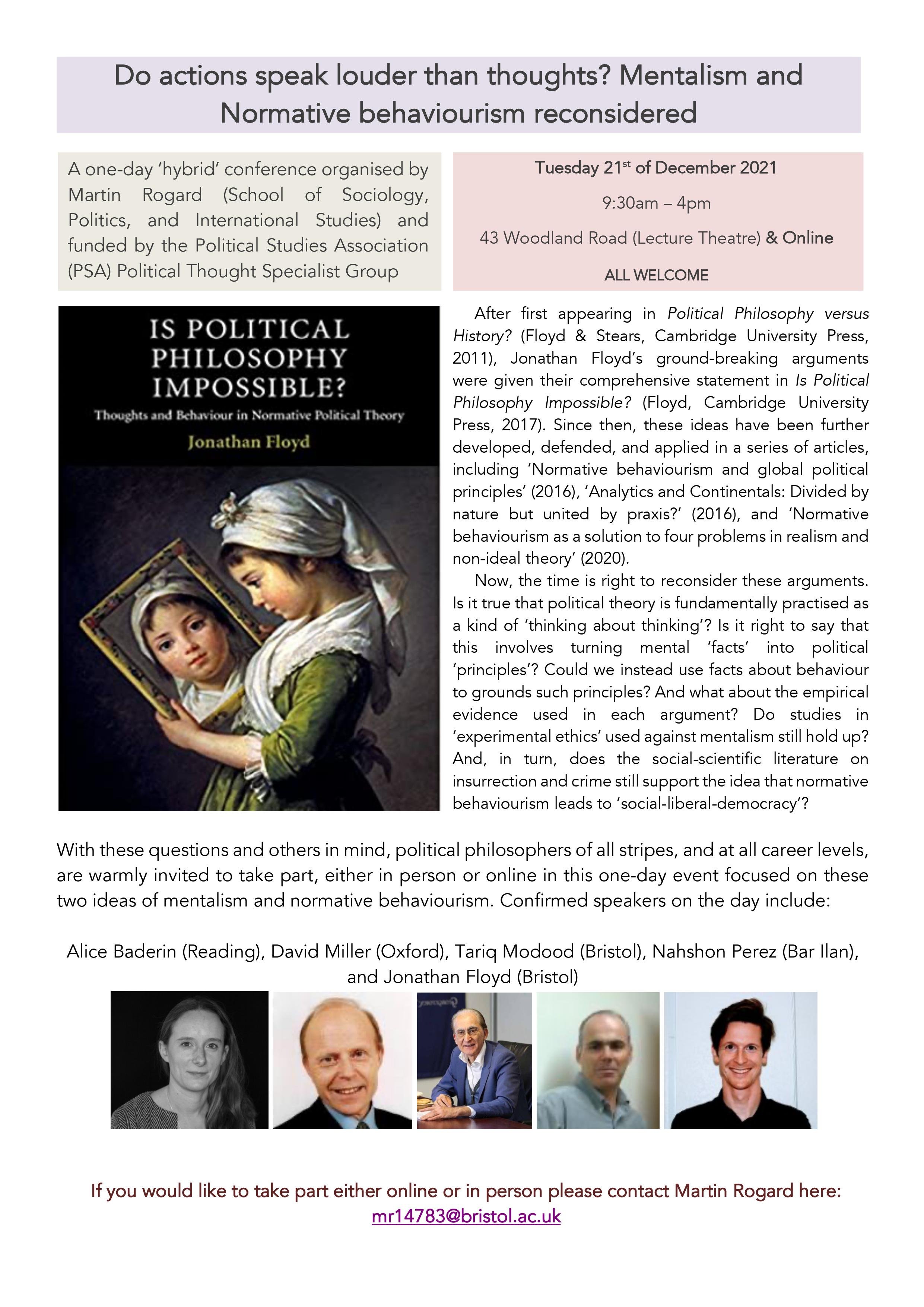Do actions speak louder than thoughts? (or at least more clearly)
Imagine that political philosophy, today, was mostly practised as a kind of ‘thinking about thinking’, according to which we look for the political principles underlying the various ‘normative thoughts’ in our head (intuitions, considered judgements, sentences that begin with ‘imagine’, etc.) and then use those principles to guide us in the world. Sometimes we’ll be more reflective about this process, and call it ‘reflective equilibrium’, and sometimes not, but either way, let’s call this general approach mentalism.
Now imagine there’s an alternative way of doing things, according to which we measure principles by the way we respond to them in practice, as and when those principles are expressed through concrete institutions and policies. This idea we might call normative behaviourism.
My question now is this: What ought we to do if the former proved impossible, because our thoughts are too inconsistent, both within and between individuals, whilst the latter showed potential, both by learning from history and encouraging us to run careful ‘experiments’ in the future?
This general line of reasoning was first published in the book on the top-left, before comprehensive development in the book on its right-hand side. For the latest iteration, see the articles below, though I fear for the best appraisal of the ideas involved you should consult the critiques of them published as part of a symposium recently published in Political Studies Review in 2023, and excellently edited by Ed Handby (with contributions from: Alice Baderin, Keith Dowding, Eva Erman, David Miller, Tariq Modood, Nahshon Perez, and Enzo Rossi). My response to them is here.
Selected Articles…
Normative behaviourism connected to ‘praxis’ & the ‘analytical/continental’ divide here.
Normative behaviourism connected to ‘international political theory’ & the problem of ‘cultural relativism’ here.
Normative behaviourism connected to the ‘ideal/nonideal-theory’ debate here.
Normative behaviourism connected to ‘moralism’ & especially ‘realism’ here.
Normative behaviourism ‘defended’ and ‘developed’ in light of its critics here.
See also this nice write-up of a guest lecture I gave on these themes at Colgate University (in late 2023), under the rather dramatic heading of ‘The Death of Armchair Philosophy’.
I am very grateful that, in December 2021, the Political Studies Association (PSA) (via the Political Theory Specialist Group) funded a one-day workshop on these ideas of mine at the University of Bristol (wonderfully organised by Martin Rogard, and with great help from Harvey Dryer).
I am also grateful that, in April 2023, Political Studies Review hosted (& funded) a panel on the same theme at the PSA’s annual general conference (with Eva Erman, Marta Wojciechowska, Enzo Rossi, and myself).
Finally, I am very grateful to the European Consortium for Political Research (ECPR) for funding an international two-day workshop in May 2023 at the University of Roskilde (hosted by Sune Laegaard) on how we might further develop ‘normative behaviourism’, and in particular the progressive hopes it pins on the idea of ‘experimentation’. Speakers there included: David Axelson, Ilaria Cozzaglio, Greta Favara, Jonathan Leader-Maynard, Kasper Lipper-Rasmussen, Tereza Křepelová, Soren Mitgard, Manon Westphal, and Hwa Young Kim.
For details of the first of these events, see the flyer below (on a mobile) or above (on a desktop).
Details of the latter two here.


